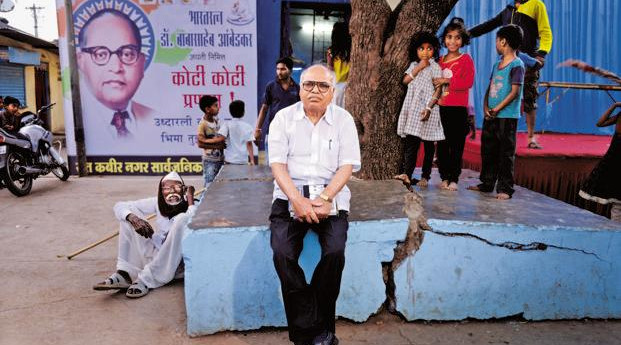At a time when Koregaon has become a battleground again, it is important to revisit the underpinnings of caste in every reading of this historical incident.

Image credit: Livemint
Scholar Raosaheb Kasbe’s book Zot—translated from Marathi into English as Spotlight on the RSS—refers to Golwalkar’s “grief” on the Mahars fighting the Peshwas. At a time when Koregaon has become a battleground again, it is important to revisit the underpinnings of caste in every reading of this historical incident. This is what Raosaheb Kasbe has to say:
“Golwalkar expresses grief over untouchables supporting the British and fighting with the Peshwa. There is a Victory Pillar in Koregaon near Pune. There are names of soldiers carved on the pillar who fought with the Peshwa. The national leader of the dalits once spoke of the pillar as ‘This Pillar is a symbol of the victory of Harijans over Brahmins.’ The reason was they fought with Brahmins with support of the British and defeated the Peshwa. While taking note of this event, Golwalkar describes it as ‘What a perversity!’ (Bunch of Thoughts: 111). But he does not talk about the Peshwa, his evil intentions or perversion even. There is not a word or a single mention. Let me quote the entire paragraph from Golwalkar’s book to understand his attitude towards the caste politics:
We must read the original texts and find out why and how bahujan communities fought with the Peshwas. The Peshwas had harassed dalits and Maratha farmers. Such harassment was exceedingly crude, inhuman, bestial and malicious, and beyond anyone’s imagination. They raped women and unmarried girls of dalits and Maratha farmers. Such was the menace that even reading or hearing about what the Peshwas did creates fear and turmoil in our minds. The Hinduists of today, on the contrary, like Golwalkar, justify such cruel Peshwas. Also, they do not want to lose their place as a dictating class. Similarly, they consider non-Brahmins Shudras, and assert their political supremacy. In spite of such contradictions, they argue that only they are the real nationalists. And the only objective correlative is that they are the only Hindu-Brahmins! Besides, they over-emphasise the message Hinduism as nationalism. Who will venerate such a statement? In a nation in which there is a perpetual climate of slavery; a nation in which the common man is continuously exploited in the name of religion; a nation in which one wealthy class leads a life of luxury and hedonism and is parasitic; in such a nation, nationalism never comes into existence. In such a nation, the only –ism that can sprout is the –ism of class-dominance and, in the context of India, it is a discourse of casteism!”
Extracted from Spotlight on the RSS by Raosaheb Kasbe, translated by Deepak Borgave.
Courtesy: Newsclick.